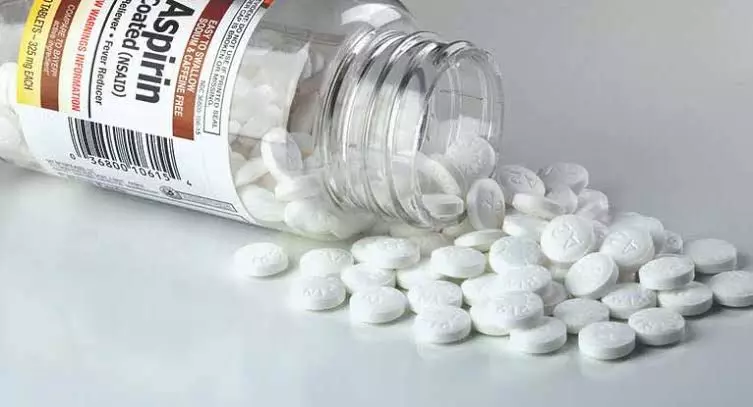Beware! Don’t pop Aspirin randomly; it can lead to complications
It has been found that aspirin has a positive impact on overall bone health and minimizes the risk of fractures
By Sulogna Mehta
Hyderabad: Now here is one drug that seems paradoxically both a panacea and also a peril, when overused or consumed indiscriminately. And this wonder medicine is Aspirin.
Aspirin is a non-steroidal anti-inflammatory drug, commonly called NSAID that inhibits the process of inflammation in the body through irreversible action on the Cox 1 and Cox 2 – enzymes that are part of the inflammatory pathway, which are inhibited by aspirin. The main chemical composition of aspirin is salicylic acid.
Studies point to aspirin’s link with bone health
As per studies published in Harvard Health Publishing, it has been found that aspirin has a positive impact on overall bone health and minimizes the risk of fractures. It may encourage the development and survival of bone marrow cells involved in bone formation. It may also inhibit cells that break down bones. Additionally, by preventing cardiovascular disease and stroke, Aspirin might reduce frailty and improve overall health. This could lead to fewer falls and bone fractures. One review of multiple studies found that aspirin reduced fracture risk by 17 %.
Low dose of aspirin can reduce chances of colorectal cancer
A study in the US has also found that low doses of aspirin used daily can decrease the chances of colorectal cancers in people above 40 and 50 years. Colon cancer is the leading type of cancer among men after lung cancer. Especially, those with a family history of cancer can also take aspirin to prevent its occurrence in the future but the drug should be taken strictly under a doctor’s prescription.
Pros and cons of aspirin usage
Elaborating on the positive and negative effects of aspirin, Hyderabad-based general physician Dr P Saketha Reddy, says, “Aspirin is taken in various doses for several ailments. Low-dose aspirin is given daily to those suffering from cardiovascular diseases. They prevent platelet aggregation and decrease blood clot formation thereby lowering the risk of stroke and heart attacks. Aspirin also helps to ease chronic pains like high rheumatoid arthritis and toothaches. But these should be taken under prescription only. Higher doses of aspirin help decrease the inflammatory factors irreversibly and medium doses of one or two tablets a day for about five to seven days can address fever and headaches. These can be taken as over-the-counter (OTC) drug.”
Contraindications: Who should not consume aspirin
“Though aspirin acts as a wonder drug for most ailments, it is not recommended for patients with severe gastritis as it can cause internal bleeding and also those with a previous history of peptic ulcers and bleeding disorders such as hemophilia patients.
Aspirin should also not be taken by children and teenagers below 18 years of age, pregnant women, and those allergic to this drug as it can cause an asthmatic attack as fallout of an allergic reaction. Aspirin also causes Reye's syndrome (severely damaged liver). High dosage of Aspirin used for a long time without proper medical advice can also cause renal failure,” avers Dr. Reddy.